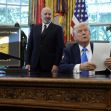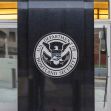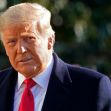The H-1B visa program, used by highly-skilled foreign workers, was the recipient of a temporary ban proposed by the Trump administration last October. On January 8, 2021, the Trump administration finalized a rule that would have eliminated the H-1B visa lottery altogether for the coming season, replacing the lottery with a system based upon experience and pay.
All of the nearly 1,500 comments to the rule were rejected: “Following careful consideration of public comments received, including relevant data provided, DHS has declined to modify the regulatory text proposed in the Notice of Proposed Rulemaking (NPRM) published in the Federal Register on November 2, 2020. Therefore DHS is publishing this final rule as proposed in the NPRM,” DHS reported.
William Stock of Klasko Immigration Law Partners said, “Under the Administrative Procedure Act, an agency must meaningfully address comments raised by the public in response to the proposed rulemaking. DHS needed to address a significant number of comments regarding whether the rule was lawfully promulgated, and did little more than repeat legal arguments that have been rejected by numerous federal courts about the lawfulness of the DHS secretary’s appointment.”
The Department of Homeland Security said in an official statement on Thursday, February 4, 2021: “To give USCIS more time to develop, test, and implement the modifications to the H-1B registration system and selection process, DHS is delaying the effective date of this final rule from March 9, 2021, to December 31, 2021. The delay will also provide more time for USCIS to train staff and perform public outreach as well as give stakeholders time to adjust to the new rule.” DHS is accepting public comments on this delay until March 20, 2021. After December 31, 2021, they will reopen the rule to public comment, which allows time and leeway for DHS to redraft the rule before it takes effect next year.
This delay provides a level of certainty to businesses who want to sponsor foreign professionals for visas this year.
The Trump administration claimed that the visa program let businesses hire foreign workers at lower salaries, and by doing so, depressed wages. They thought that by awarding visas to those foreign workers who earned the highest wages, the market would be favorably impacted. The administration rejected 15.1% of applications in 2019, significantly more than the 6.1% rejected in 2016.
Another of the Trump administration’s reasons for changing the rules was the idea that because of the pandemic, limited immigration was necessary to prevent sick people from coming into the country. They also wanted to ascertain that Americans got jobs first as the economy recovers.
The way they set up their rule, visas would be awarded to the highest wage level applicants for a particular occupation within a particular geographic area. Four wage levels were assigned for each occupation in a given region. Employers would be required to pay salaries at or above those levels, according to their visa worker’s experience. This would guarantee that no applicants ranked at the entry level, and perhaps 75% of the next level up would qualify for visas. Some attorneys and companies say the regulation violates the statute.
Brad Banias of Wasden Banias said, “The statute mandates visas be issued in the order in which they are received. While a lottery may be a fair interpretation of that mandate when 250,000 application show up on the same day, the same cannot be said of prioritizing those applications based on wages. A regulation is an interpretation of an ambiguous statutory provision. This interpretation is wholly unmoored from the statute and likely ultra vires (beyond one’s legal authority). The statute provides [an] interpretive jumping off point for this final rule. It will be interesting to see if the new administration even defends it.”
85,000 new H-1B visas are awarded each year, and there are always fewer visas issued than applications submitted. If the Trump rule is used, in place of the H-1B lottery, the 65,000 petitions allowed under the annual limit and the 20,000 petitions for people with an advanced degree from a U.S. university would be awarded from highest to lowest salary. The biggest beneficiaries of the H-1B visa currently are Indian IT professionals. They receive about 2/3 of the H-1B visas issued annually.
DHS posited that universities and international students probably won’t be affected by the new regulation. Representatives of schools and students disagree.
“The proposed rule is unsound policy, not supported by statute, and will serve only to further undermine the ability of our colleges and universities to recruit and retain international students,” said Miriam Feldblum, executive director of the Presidents’ Alliance on Higher Education and Immigration. She went on to say, “H-1B visas serve as a critical pathway for these students. The proposed rule will block these opportunities by imposing a system that grants H-1B petitions based on the highest salary first, locking out many new international graduates of U.S. colleges and universities. Our communities, economy, and country will lose, while other countries that facilitate policies for international students to stay and work will benefit.”
The executive director of immigration policy at the U.S. Chamber of Commerce, Jon Baselice, said that the rule would disrupt business operations and deny them access to the talent they needed to grow their businesses and create jobs.
Sharvari Dalal-Dheini, director of government relations at the American Immigration Lawyers Association, said “The Trump administration issued this midnight regulation and didn’t provide any guidance to affected parties and their lawyers about how the system was going to work” prior to the registration period. “That’s caused a lot of anxiety.”
Biden’s administration hasn’t said it’s opposed to Trump’s handling of the visa program, but they have committed to undoing many aspects of his administration’s policies. The visa program is heavily relied upon by technology companies in particular to hire recent international graduates of U.S. universities and foreign professionals.
The Biden administration cannot just suspend the rule indefinitely. According to William Stock, “It is important to note that the 60-day [sic] delay of the rule only buys time to revoke the rule, which would have to be done by notice and comment or via a court decision striking it down.” Geoff Forney of Wasden Banias is in agreement. “The delayed effective date, as required under the Administrative Procedure Act, is simply intended to provide the regulated public an opportunity to prepare for the rule. The new administration unfortunately cannot simply suspend the rule from coming into operation. Rather, the new administration must rescind the rule through notice and comment because courts have held that suspending a rule is itself a rule and putting a rule into effect requires notice and comment.”
Biden’s campaign platform included the philosophy that “high skilled temporary visas should not be used to disincentivize recruiting workers already in the U.S.” Administration officials suggest that it’s likely they’ll try to preserve some preference for visa applicants with higher salaries in the future. The immigration bill Biden sent to Congress proposes adding a wage requirement to H-1B.
Rob Law, former head of policy at DHS’s legal immigration agency, helped write the rule changing the process. He said, “It looks like the only problem the Biden team had with ending the H-1B lottery was that the Trump administration came up with the idea.”






